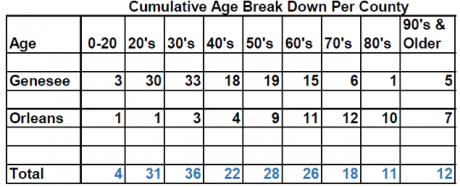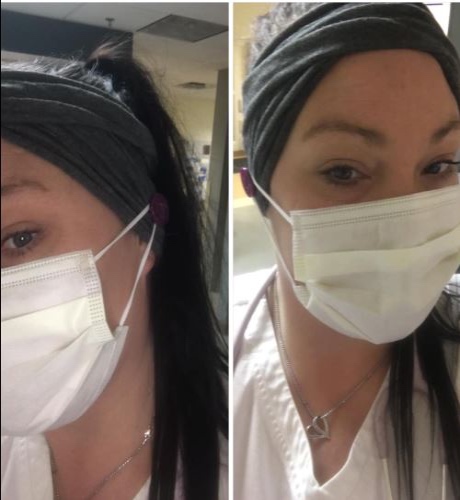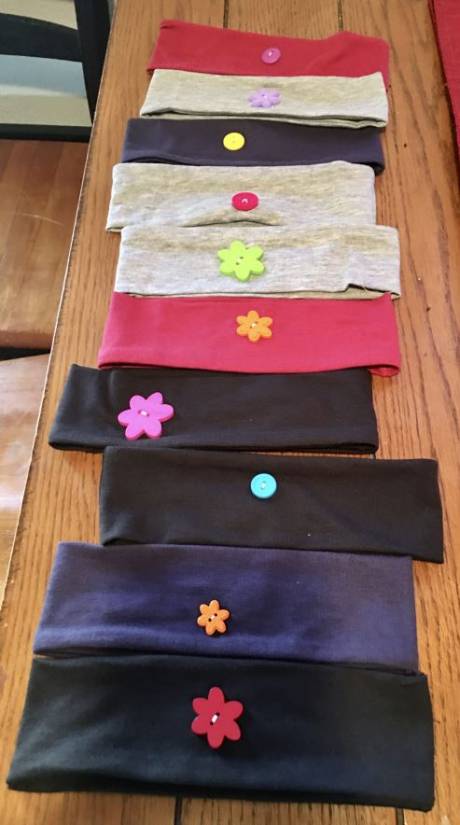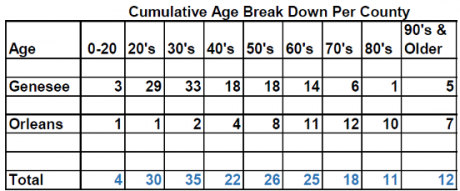The Batavia City School District is facing the possibility of cutting up to 9 percent of its staff to close a $1.9 million gap in its 2020-21 budget.
Superintendent Anibal Soler Jr. on Monday said that up to 30 employees – from administrators to part-time clerical workers – may have to be laid off as a result of the Board of Education’s decision to deliver a final budget with little or no property tax increase.
“The original plan was to propose a tax cap override, with a 2.66 percent property tax increase that would have meant (an additional) $60 per year for a home assessed at $100,000,” Soler said. “Now it’s gone up to 9 percent, which is not possible. The board’s position is to have a zero percent tax increase, especially with so many people losing their jobs.”
Longtime Board President Patrick Burk concurred, adding that seeking a tax cap override – and the 60 percent plus one vote to pass – would put the budget in jeopardy and “undermine any stability that we could give for the coming year.”
Soler said the district was looking at a shortfall of about $1.5 million when he was hired in January. That number grew by another $400,000 (less state aid) when the New York State budget was adopted earlier this month.
The initial $1.5 million deficit is directly related to personnel expenditures, Business Administrator Scott Rozanski said.
“The increase in salary from the rollover of current staffing and the collective bargaining agreements and benefits associated with payroll” are key factors in the gap, Rozanski said, adding that the COVID-19 impact has yet to be fully determined.
Additional state aid cuts approaching?
He said that because the state also foresees a budget shortfall projected to be as high as $15 million, there could be more school aid cuts down the road.
“The state has set four separate measurement periods where state aid could be adjusted,” Rozanski explained. “Locally, we will need to put more resources towards cleaning and our technology needs will change as our instructional program changes. Next year will not be a normal year. Everything we do will be evaluated and potentially impacted.”
In an effort to avoid large-scale layoffs for the next fiscal year, which starts on July 1, Soler said that he asked the Batavia Teachers’ Association to consider a one-year pay freeze. About 70 percent of the district’s expenses are related to payroll and fringe benefits.
“My priorities are, one, no increases in taxes to the community; second, balancing our budget and (third) trying to protect people during what are unprecedented times that we haven’t seen since the situation we had in 2008 with the economic fall nationally,” Soler said.
As it stands now, Soler may be able to accomplish two of those three objectives because the teachers’ union declined to accept his call for a wage freeze.
Soler: Seeking ‘to protect teachers’
“When I spoke to the union president, I was told that they were not interested in discussing any options regarding a pay freeze. My understanding is that they didn’t even put it out there for their members to vote,” Soler said.
“I had to ask it before I went through the process. Would you be willing to take a pay freeze so that we can protect teachers and not lay off somebody who just came into the profession – first- and second-year teachers? Now, I may not be able to protect people with these additional adjustments,” he said. “I thought I was going to be in a pretty good spot if we were to have taken a pay freeze and protected the entire workforce – at least guaranteed them employment into next year and see what these adjustments look like from the governor.”
Soler said that the average salary with benefits for the district’s educators was around $80,000, with first-year teachers’ total compensation package valued at $64,000. “Some are making over $100,000,” he said, while some administrators earn substantially more than that.
Burk said he also was hoping that the union would agree to what he called a “one-year extension of what currently is in its contract.”
“I was told that the teachers didn’t vote on it … it was just decided that that was not going to be part of the discussion,” Burk said. “If we can’t come up with payroll lessening by wage freeze, we have to look at other areas. But that doesn’t come up with the $1.5 million that is required at this time.”
BTA President: Don’t pin this on us
Mark Warren, president of the Batavia Teachers’ Association, said the burden of correcting the budget gap shouldn’t rest on the shoulders of the union, which is completing the first year of a three-year contract.
“All I know is that before state (aid) runs came out, before they decided not to go with a tax levy increase, they already had a deficit (for 2020-21),” Warren said. “They were talking about that at the budget ambassador meetings prior to the closure. They’re going to say that flat state aid is part of it, but they were already talking deficit before state aid was flat.”
Warren, a math teacher in is 16th year at Batavia, said he discussed the proposal with membership, but the feeling was that the request wasn’t justified.
“When they first brought it up, he (Soler) mentioned that we have added 30 or so teachers in the last eight or nine years, while enrollment has basically stayed flat. He characterized it as an overstaffing issue in the beginning and then asked for a pay freeze after that,” he said.
“To be clear, the only real proposal was ‘I’m going to lay off a bunch of people if you don’t take a pay freeze.’ If we are overstaffed like he claimed in the beginning, then why would we take a pay freeze so that we’d be overstaffed a year from now? It’s not like we’re suddenly going to get this influx of students where we are going to need another 20 extra teachers, where we don’t need them now. If we are overstaffed now, we’d be overstaffed a year from now.”
Burk said that roughly 30 positions could be cut, with the dollar amount of those cuts to be determined by the next board meeting on April 28.
Executive vs. open session discussions
Soler said that position cuts were discussed in executive session at a recent meeting, a move that was appropriate since it focused on specific people in some cases.
“Some of the positions are standalone positions, so there’s only one person attached to it. So that’s why that we didn’t discuss them publicly,” he said. “The next time we meet you’ll probably see more of a public discussion around that only because the board would have had the opportunity to process that, make some recommendations and give me some guidance. So, I’ll be going in and trying to adhere to that guidance.”
The superintendent also said his request for a pay freeze was discussed in an open session, but there was no talk of changes to the union’s contract.
“What I asked them to do was, if you want to help us avoid layoffs, we would love for you to take a pay freeze for the year. That was the only contract item that was discussed, and that would not be something that would require to reopen their contract,” he said. “If all of our employees, if all of our bargaining units were not to take a pay increase, it would save the district $1.5 million. And I even included myself it that conversation. I would not take an increase as well.”
Staff cuts to be across the board
With a moratorium on pay increases off the table, Burk said the board is taking steps to reduce expenses on a department-by-department basis.
“As far as specific positions, we haven’t gotten into that, but we have said what we would do with specific departments,” he said. “This is going all the way across the board. This is administrators being cut, teachers, teacher aides, custodial, food service, clerical. It’s everybody.”
The board is proceeding judiciously, Burk said.
“Our goal is to have the highest contact with students and the greatest impact with students that we possibly can,” he stated. “Cuts would be people who do not have direct, hands-on daily contact with our students; that’s obviously our most important thing.”
Soler said he expects more clarity at the April 28th meeting, mentioning a detailed list of recommendations that will be shared with the “greater public.”
“Then we can say that it is this many science teachers, it is this many math teachers, it is this many reading teachers and it is this many administrators because it’s every group that is going to be impacted.”







